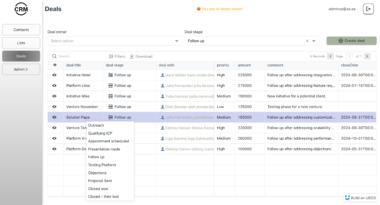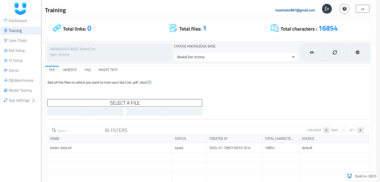Unleash AI-Powered Creativity in Unreal Engine with UnrealMCP
In the rapidly evolving landscape of game development and virtual world creation, the integration of Artificial Intelligence (AI) offers unprecedented opportunities for automation, innovation, and enhanced workflows. UnrealMCP emerges as a pivotal tool in this arena, providing a robust bridge between AI agents and the powerful Unreal Engine. This unofficial plugin empowers developers to control Unreal Engine programmatically, opening doors to a new era of AI-driven design and development.
What is UnrealMCP?
UnrealMCP is an Unreal Engine plugin designed to enable AI tools to control Unreal Engine. By implementing a Machine Control Protocol (MCP), it allows external AI systems to interact with and manipulate the Unreal environment. This interaction is facilitated through a TCP server and a JSON-based command protocol, providing a seamless interface for AI agents to execute commands and modify the Unreal Engine scene.
It is based on MCP protocol, which intended to standardize how applications provide context to Large Language Models (LLMs). An MCP server acts as an intermediary, granting AI models access to external data sources and specialized tools.
Important Note: UnrealMCP is currently a work-in-progress, with ongoing development focused on expanding its capabilities and refining its codebase. While the plugin offers tremendous potential, users should be aware of its current limitations and potential risks.
Key Features of UnrealMCP
- TCP Server Implementation: Enables remote control of Unreal Engine, allowing AI tools to send commands and receive feedback.
- JSON-Based Command Protocol: Provides a structured and standardized way for AI tools to interact with Unreal Engine, ensuring clear communication and efficient execution of commands.
- Editor UI Integration: Offers easy access to MCP functionality within the Unreal Engine editor, making it convenient for developers to manage and control the plugin.
- Comprehensive Scene Manipulation Capabilities: Allows AI agents to create, modify, and delete objects in the scene, adjust their properties, and perform various other scene manipulation tasks.
- Python Companion Scripts: Provides client-side scripts for interacting with the UnrealMCP server, simplifying the process of integrating AI tools with Unreal Engine.
Use Cases for UnrealMCP
UnrealMCP unlocks a wide range of use cases, transforming how developers interact with Unreal Engine and opening up new possibilities for AI-driven content creation:
- Automated Content Generation: AI agents can automatically generate environments, populate scenes with assets, and create variations of existing content, saving developers time and effort.
- Intelligent Asset Placement: AI can analyze scene context and strategically place assets, optimizing for visual appeal, gameplay mechanics, or other desired criteria.
- Dynamic Scene Modification: AI agents can dynamically adjust scene elements based on real-time data, user input, or other external factors, creating immersive and interactive experiences.
- AI-Assisted Level Design: AI can assist level designers by suggesting layouts, identifying potential gameplay issues, and generating initial drafts of levels.
- Automated Testing and QA: AI agents can automatically test game mechanics, identify bugs, and ensure the quality of the game.
- Interactive Prototyping: Quickly iterate on ideas by using AI to generate and modify scenes based on textual prompts. Visualize concepts faster and experiment with different design approaches with minimal manual effort.
- Procedural Content Generation (PCG) Augmentation: Enhance existing PCG workflows by using AI to guide and refine the generated content. This combines the power of algorithmic generation with the creative insight of AI.
Potential Risks and Safety Measures
It’s crucial to acknowledge the potential risks associated with allowing AI agents to directly modify Unreal Engine projects:
- Unexpected Changes: AI agents may make unintended or undesirable changes to the project.
- Data Loss: Files could be accidentally deleted or modified, leading to data loss.
- Project Corruption: Project settings could be altered, potentially corrupting the project.
- Asset Overwriting: Assets could be overwritten, resulting in loss of work.
To mitigate these risks, it is essential to implement the following safety measures:
- Use Source Control: Always use source control (like Git or Perforce) to track changes and revert to previous versions if needed.
- Regular Backups: Make regular backups of your project to protect against data loss.
- Separate Test Project: Test the plugin in a separate project before using it in your main project.
- Review Changes: Carefully review any changes made by AI agents before committing them.
By using UnrealMCP, you acknowledge and accept these risks and agree to take full responsibility for any changes made to your project.
Getting Started with UnrealMCP
To start using UnrealMCP, follow these steps:
- Download the Plugin: Clone or download the UnrealMCP repository from its source.
- Create a Plugins Folder: If your Unreal Engine project doesn’t have a “Plugins” folder, create one in the project directory.
- Install the Plugin: Copy the contents of the UnrealMCP repository into the “Plugins” folder.
- Run Setup Script: Execute the
setup_unreal_mcp.batscript located in the MCP folder. - Enable the Plugin: Open your Unreal Engine project and enable the UnrealMCP plugin in the Edit > Plugins menu.
- Configure AI Assistant: Configure your preferred AI assistant (Claude for Desktop or Cursor) to work with UnrealMCP.
- Launch Unreal Editor: Start the Unreal Editor. The MCP bridge will run when needed.
For detailed instructions and troubleshooting tips, refer to the plugin’s documentation.
Roadmap for Future Development
The development of UnrealMCP is ongoing, with a roadmap that includes the following features:
- User Extensions: Allow users to extend the plugin’s functionality with custom tools.
- Asset Tools: Provide tools for managing and manipulating assets in the scene.
- Blueprint Integration: Enable AI agents to interact with Blueprints.
- Niagara VFX: Allow AI agents to control and manipulate Niagara visual effects.
- Metasound Integration: Integrate with Metasound for AI-driven audio design.
- Landscape Tools: Provide tools for creating and modifying landscapes.
- Modeling Tools: Enable AI agents to perform modeling tasks.
- PCG: Support Procedural Content Generation.
Integrating with UBOS: The Future of AI Agent Orchestration
While UnrealMCP provides a powerful bridge between AI and Unreal Engine, the true potential lies in orchestrating these AI agents within a comprehensive platform. This is where UBOS comes in. UBOS is a full-stack AI Agent Development Platform designed to bring AI Agents to every business department.
Here’s how UBOS can elevate your UnrealMCP workflow:
- Multi-Agent Systems: UBOS enables the creation of Multi-Agent Systems (MAS), allowing multiple AI agents to collaborate on complex tasks within Unreal Engine. Imagine an AI team working together to design a level, with one agent focusing on environment generation, another on asset placement, and a third on gameplay mechanics.
- Enterprise Data Connection: UBOS allows you to connect your AI agents to enterprise data sources, enabling data-driven decision-making within Unreal Engine. For example, AI agents could use real-time market data to dynamically adjust the environment in a virtual storefront.
- Custom AI Agent Development: UBOS allows you to build custom AI Agents with your LLM model tailored to your specific needs within Unreal Engine. This means you can train AI agents to perform specialized tasks, such as creating realistic character animations or generating highly detailed 3D models.
- AI Agent Orchestration: UBOS provides a centralized platform for managing and orchestrating your AI agents, ensuring they work together efficiently and effectively within Unreal Engine. This simplifies the process of deploying, monitoring, and scaling your AI-powered Unreal Engine projects.
By combining the capabilities of UnrealMCP with the power of UBOS, developers can unlock a new level of AI-driven creativity and automation in Unreal Engine. This integration paves the way for truly intelligent virtual worlds and immersive experiences.
Conclusion
UnrealMCP represents a significant step forward in the integration of AI with Unreal Engine. By providing a standardized interface for AI tools to interact with the engine, it empowers developers to automate tasks, generate content, and create more immersive and interactive experiences. As the plugin continues to evolve and as platforms like UBOS emerge to orchestrate these AI agents, the future of game development and virtual world creation will be increasingly shaped by the power of artificial intelligence.
Unreal Engine Plugin
Project Details
- AlexKissiJr/UnrealMCP
- Last Updated: 5/7/2025
Recomended MCP Servers

A simple MCP server to search for documentation (tutorial)


Kick API MCP
This project provides an MCP (Multi-Channel Pipeline) server that acts as a wrapper for the MLB Stats API....
An MCP (Model Context Protocol) tool that provides cryptocurrency market data using the CoinGecko API, specifically designed for...



MultiStep MCP That Returns CVE Information With EPSS Score
A simple TypeScript library for creating MCP servers.

Model Context Protocol (MCP) server implementation for ClickUp integration
 From vibe coding to vibe deployment. UBOS MCP turns ideas into infra with one message.
From vibe coding to vibe deployment. UBOS MCP turns ideas into infra with one message.






